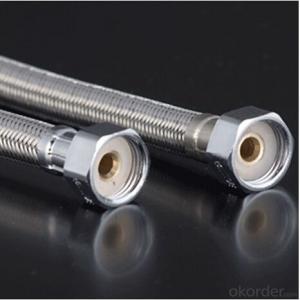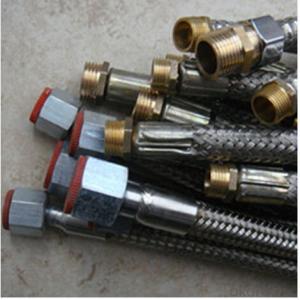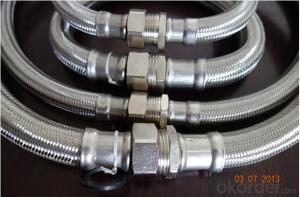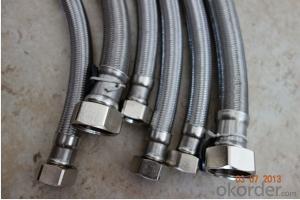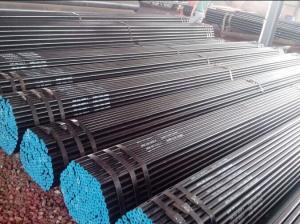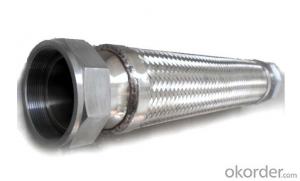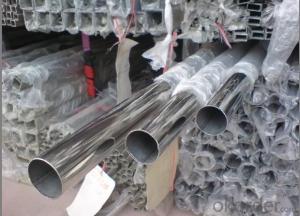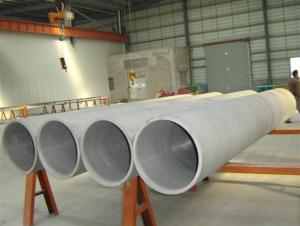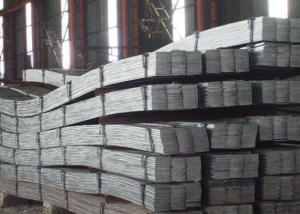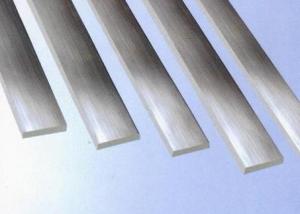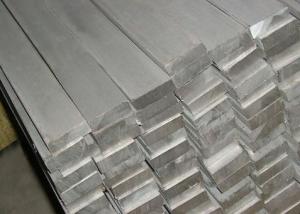Rubber Metal Hose with High Pressure Corrugated
- Loading Port:
- Tianjin
- Payment Terms:
- TT OR LC
- Min Order Qty:
- 1000 pc
- Supply Capability:
- 100000 pc/month
OKorder Service Pledge
OKorder Financial Service
You Might Also Like
Item specifice
Rubber Metal Hose with High Pressure Corrugated
Applications of Rubber Metal Hose with High Pressure Corrugated:
--Refueling system
--Chemical and pharmaceutical industry
--Industrial hydraulic systems
--Air conditioners in industrial and construction –site vehicles
--Food and beverage industry
--Special and standard industrial applications
--Water and cleaning management
Features of Rubber Metal Hose with High Pressure Corrugated:
1. )O. D.: 13-18MM 0.2-3M long
2. )Nut.: Nickel/Chrome Plated Brass (Zinc / Iron / Aluminum is available)
3. )Size Of Nut.: Female&Male 1/2''; 3/4''; 3/8''; 7/8''; 5/16'', and M10...
4. )Insert.: Brass (Zinc / Aluminum / Plastic is available)
5. )Inner tube.: Rubber/ EPDM/PVC
6. )Covered Material: Stainless Steel 201, 301, 304 /Aluminium Wire
7. )Working Pressure: 5Kg-15Kg
8. )Temperature: 0-92° C
9. )Quality Assurance: 3 years
RemarkAPPLICATION: HOUSEEHOLD WARE, BATHROOM WARE, SHOWER HOSE
PAYMENT: T/T, L/C
DELIVERY TIME: 20DAYS OR 30DAYS AFTER RECEIVED 30% DEPOSITS
MOQ: 5000PCS
ODM&OEM IS ACCEPTABLE
PackageInner: PP bag /Blister packing Outer: Carton box
Specifications of Rubber Metal Hose with High Pressure Corrugated:
NO | I.D | Refer to O.D | Working pressure | Burst pressure | approximate Weight | |||||
(inch) | (mm) | (inch) | (mm) | MPa | Psi | MPa | Psi | kg/m | lbs/ft | |
1 | 1/8 | 3.2±0.2 | 0.35 | 9±0.3 | 2.06 | 300 | 8.27 | 1200 | 0.078 | 0.12 |
2 | 5/32 | 4±0.2 | 0.4 | 10±0.3 | 2.06 | 300 | 8.27 | 1200 | 0.092 | 0.14 |
3 | 3/16 | 4.8±0.2 | 0.43 | 11±0.3 | 2.06 | 300 | 8.27 | 1200 | 0.108 | 0.16 |
4 | 1/4 | 6.3±0.3 | 0.5 | 12.7±0.3 | 2.06 | 300 | 8.27 | 1200 | 0.134 | 0.2 |
5 | 5/16 | 8.0±0.3 | 0.56 | 14±0.3 | 2.06 | 300 | 8.27 | 1200 | 0.147 | 0.22 |
6 | 3/8 | 9.5±0.3 | 0.63 | 16±0.4 | 2.06 | 300 | 8.27 | 1200 | 0.182 | 0.27 |
7 | 15/32 | 12±0.3 | 0.75 | 19±0.5 | 2.06 | 300 | 8.27 | 1200 | 0.238 | 0.35 |
8 | 1/2 | 12.7±0.4 | 0.78 | 20±0.5 | 2.06 | 300 | 8.27 | 1200 | 0.262 | 0.39 |
9 | 5/8 | 16±0.4 | 0.94 | 24±0.5 | 1.03 | 150 | 4.12 | 600 | 0.351 | 0.52 |
10 | 3/4 | 19±0.4 | 1.13 | 28.8±0.5 | 1.03 | 150 | 4.12 | 600 | 0.515 | 0.77 |
11 | 1 | 25.4±0.5 | 1.38 | 35±0.6 | 1.03 | 150 | 4.12 | 600 | 0.637 | 0.95 |
Images of Rubber Metal Hose with High Pressure Corrugated:
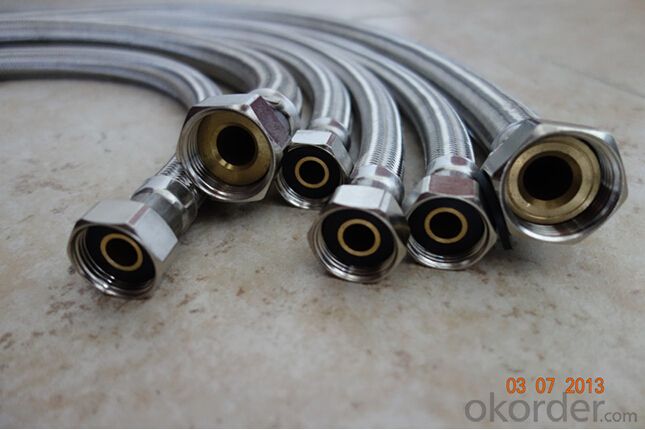
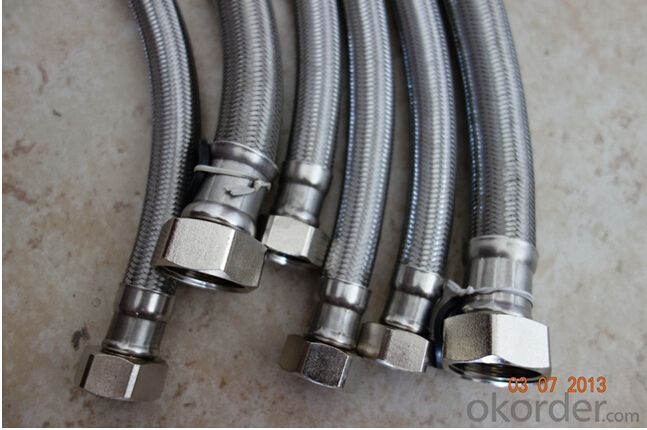
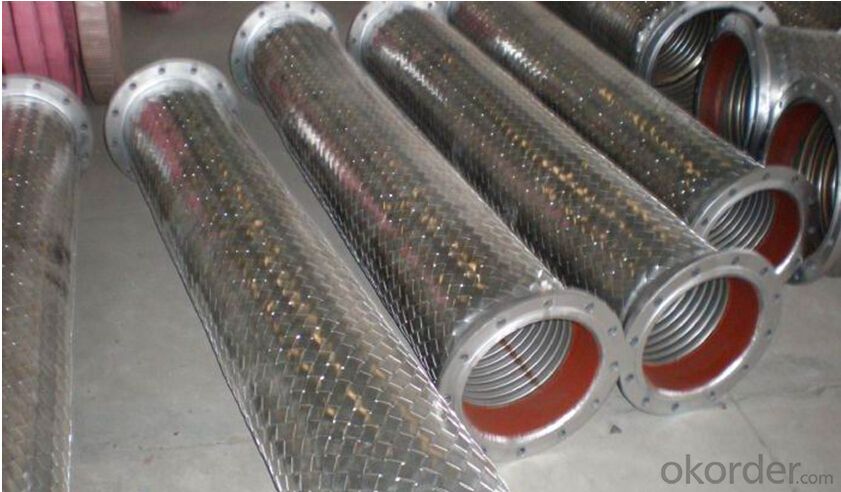
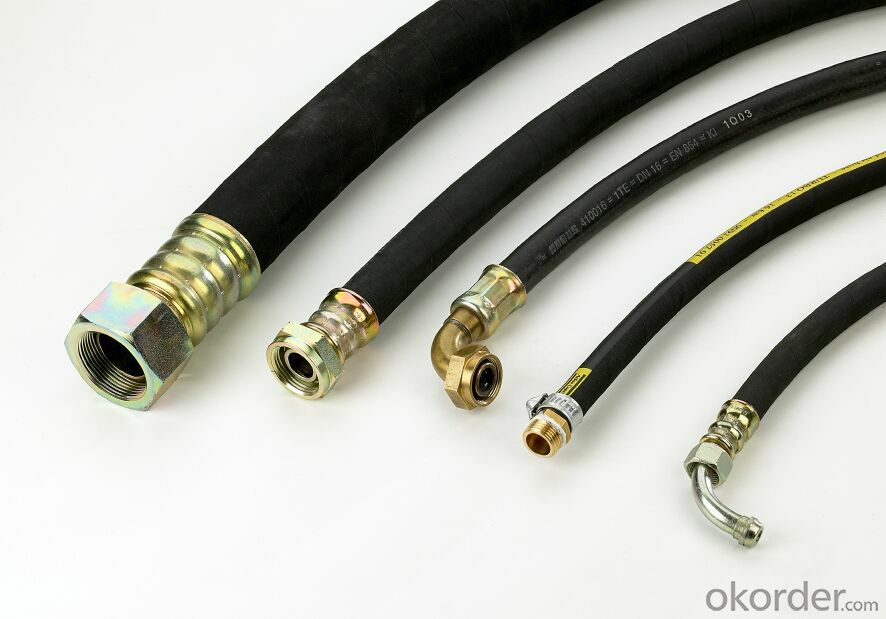
Package of Rubber Metal Hose with High Pressure Corrugated:
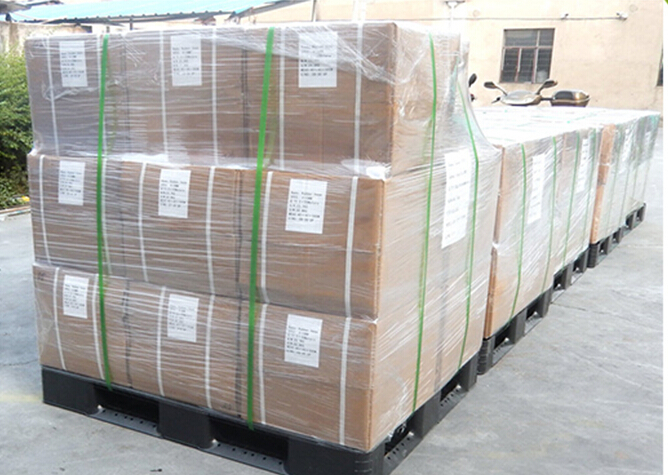
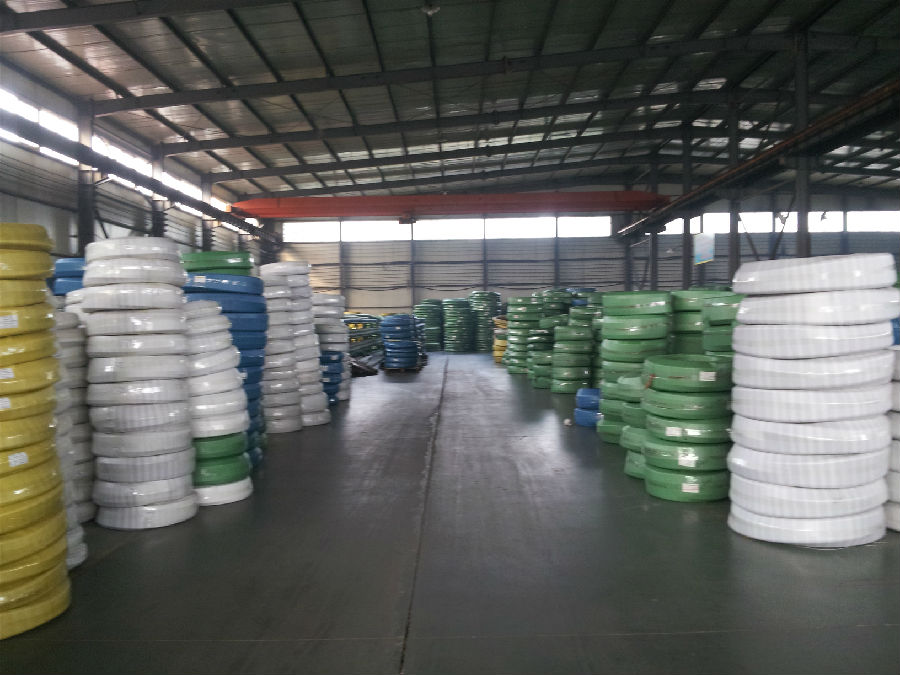
FAQ of Rubber Metal Hose with High Pressure Corrugated:
Who we are:
Answer: We CNBM is a Chinese state-owned enterprise ranked 267th among the Global Fortune 500, as the largest building materials company,we have over 300 affiliated companies,and so many production lines and branch office distribute in China.
2. About our quality:
Answer: Every product needs to be quality proved before shipping.
3. About our service:
Answer: We could gurantte that we can reply you in 2 working hours.
- Q:What is the maximum allowable working pressure for stainless steel pipes?
- The maximum allowable working pressure for stainless steel pipes depends on various factors such as the grade of stainless steel, pipe size, wall thickness, and temperature. It is typically determined using industry standards and codes, such as ASME B31.3 for process piping. Therefore, there is no one-size-fits-all answer to this question and it is important to consult the relevant standards and engineering guidelines for accurate and specific information.
- Q:How do stainless steel pipes compare to carbon steel pipes?
- Stainless steel pipes are generally more resistant to corrosion and rust than carbon steel pipes. They have higher strength and durability, making them suitable for various applications, including those requiring high pressure or extreme temperatures. While carbon steel pipes are typically more affordable, they are susceptible to corrosion and may require additional protective coatings. Ultimately, the choice between stainless steel and carbon steel pipes depends on the specific requirements and environment of the intended use.
- Q:Can stainless steel pipes be used in the food industry?
- Stainless steel pipes are indeed suitable for utilization in the food industry. Their exceptional resistance to corrosion, durability, and hygienic properties make stainless steel a favored option for piping in this sector. The material does not interact with food or drinks, thus safeguarding the quality and flavor of the products. Moreover, stainless steel pipes are effortless to clean and maintain, rendering them highly suitable for employment in food processing, beverage production, and other food industry applications. Additionally, these pipes possess commendable temperature resistance, enabling them to withstand the intense heat required during various food processing procedures. All in all, stainless steel pipes emerge as a dependable and secure choice for the transportation of food and beverages within the food industry.
- Q:Are stainless steel pipes suitable for extreme weather conditions?
- Yes, stainless steel pipes are highly suitable for extreme weather conditions. Stainless steel is known for its exceptional resistance to corrosion, making it ideal for withstanding harsh weather conditions such as extreme temperatures, heavy rain, and high humidity. Additionally, stainless steel pipes have excellent strength and durability, allowing them to withstand the impact of strong winds, storms, and other extreme weather events. Moreover, stainless steel is not affected by UV radiation, so it will not degrade or discolor when exposed to intense sunlight. Overall, stainless steel pipes are a reliable and long-lasting option for any application that requires resistance to extreme weather conditions.
- Q:Can stainless steel pipes be insulated with polyamide?
- Yes, stainless steel pipes can be insulated with polyamide. Polyamide is a commonly used material for pipe insulation due to its excellent thermal properties and resistance to high temperatures. It provides effective insulation and helps to prevent heat loss or gain in the pipes.
- Q:Can stainless steel pipes be welded?
- Indeed, it is possible to weld stainless steel pipes. Due to its remarkable resistance to corrosion and strength, stainless steel is widely favored in various industries. Among the numerous techniques employed to connect stainless steel pipes, welding is a prevalent approach. Nonetheless, it is crucial to employ suitable welding techniques and equipment to guarantee a successful weld. Each grade of stainless steel has distinct welding prerequisites, necessitating the use of a filler material that corresponds to the specific grade being welded. Furthermore, it is imperative to adequately clean and prepare the surfaces that are to be welded to ensure a robust and long-lasting joint.
- Q:Can stainless steel pipes be used for brewery and beverage industry applications?
- Stainless steel pipes are suitable for use in brewery and beverage industry applications. This material is renowned for its exceptional corrosion resistance and hygienic properties, making it an ideal option for these sectors. The presence of high levels of chromium and nickel in stainless steel pipes provides excellent protection against corrosion caused by chemicals, acids, and high temperatures. Moreover, stainless steel pipes are easy to clean and maintain, ensuring the highest level of hygiene required in brewery and beverage production. The smooth inner surface of these pipes also reduces the risk of contamination and bacterial growth, making them even more suitable for these applications. In summary, stainless steel pipes offer durability, reliability, and sanitary features that make them the preferred choice for the brewery and beverage industry.
- Q:Can stainless steel pipes be used in the food and beverage industry?
- Yes, stainless steel pipes can be used in the food and beverage industry. Stainless steel is a popular choice in this industry due to its corrosion resistance, hygienic properties, and ability to withstand high temperatures. It is commonly used for transporting various food and beverage products, ensuring safety and maintaining product integrity.
- Q:Are stainless steel pipes suitable for underground applications?
- Indeed, underground applications are well-suited for the utilization of stainless steel pipes. Renowned for its remarkable resistance to corrosion, stainless steel proves to be an exceptional selection for installations that are situated beneath the surface, where pipes are regularly exposed to moisture, soil, and other detrimental elements. Its ability to endure harsh environments while maintaining its structural integrity over time is truly impressive. Moreover, stainless steel pipes possess superior strength and durability, enabling them to withstand the immense pressure and stress associated with being buried underground. Furthermore, the non-reactive nature of stainless steel ensures that the water or fluid flowing through these pipes remains uncontaminated. Overall, stainless steel pipes can be relied upon as a dependable and long-lasting solution for underground applications.
- Q:What is the difference between a pipe and a tube in stainless steel applications?
- When it comes to stainless steel applications, the primary contrast between a pipe and a tube lies in their structural composition and intended use. A pipe is typically identified by its inner diameter (ID) and wall thickness, and its main purpose is to transport fluids or gases. It has a round shape and is commonly employed in industries such as oil and gas, chemical processing, and plumbing. Pipes can be manufactured using different methods, including seamless or welded processes. On the other hand, a tube is distinguished by its outer diameter (OD) and wall thickness, and it is commonly used for structural or mechanical purposes. Tubes can have various shapes, including round, rectangular, or square, and they are frequently utilized in industries such as construction, automotive, and aerospace. Tubes can also be produced through seamless or welded methods. Regarding manufacturing, pipes generally undergo stricter tolerances and quality control measures due to their transportation function, while tubes may have less stringent requirements as they are primarily used for structural applications. Additionally, pipes are commonly measured and sold by their nominal sizes, whereas tubes are typically specified by their actual dimensions. Both pipes and tubes can be made from stainless steel, which provides excellent corrosion resistance and durability. Stainless steel is a versatile material that is suitable for a wide range of applications, including those requiring high temperatures or exposure to harsh environments. In summary, the main difference between a pipe and a tube in stainless steel applications is their intended purpose and structural characteristics. Pipes are designed for fluid or gas transportation, while tubes are utilized for structural or mechanical applications.
1. Manufacturer Overview |
|
|---|---|
| Location | |
| Year Established | |
| Annual Output Value | |
| Main Markets | |
| Company Certifications | |
2. Manufacturer Certificates |
|
|---|---|
| a) Certification Name | |
| Range | |
| Reference | |
| Validity Period | |
3. Manufacturer Capability |
|
|---|---|
| a)Trade Capacity | |
| Nearest Port | |
| Export Percentage | |
| No.of Employees in Trade Department | |
| Language Spoken: | |
| b)Factory Information | |
| Factory Size: | |
| No. of Production Lines | |
| Contract Manufacturing | |
| Product Price Range | |
Send your message to us
Rubber Metal Hose with High Pressure Corrugated
- Loading Port:
- Tianjin
- Payment Terms:
- TT OR LC
- Min Order Qty:
- 1000 pc
- Supply Capability:
- 100000 pc/month
OKorder Service Pledge
OKorder Financial Service
Similar products
New products
Hot products
Hot Searches
Related keywords
